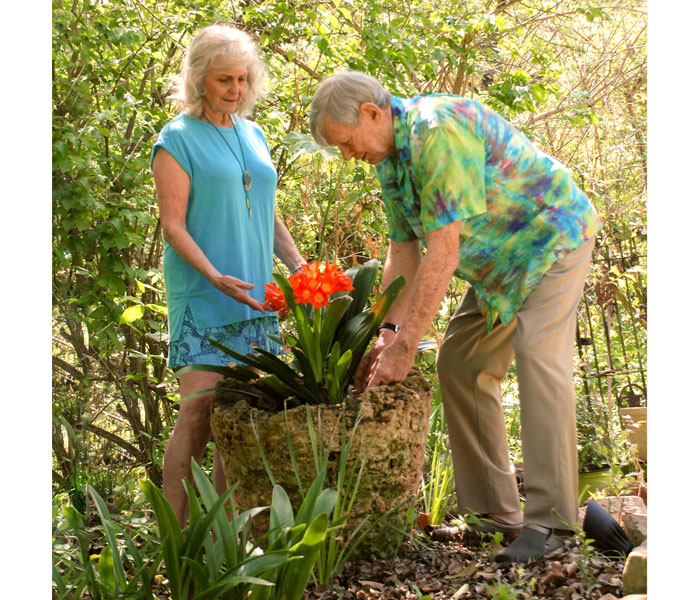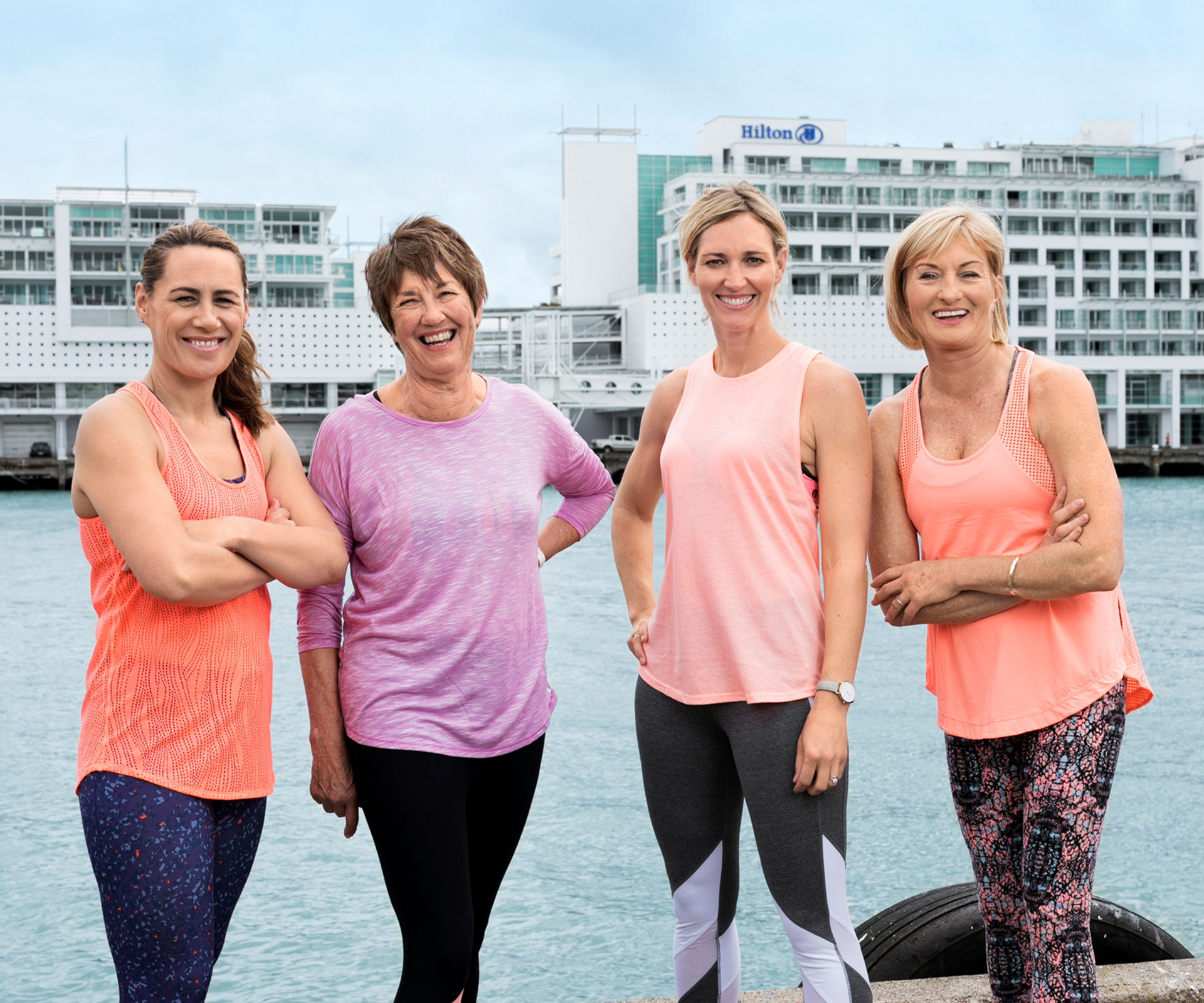If you could design the perfect septuagenarian couple, then it would be hard to look past the youthful and energetic Sir Peter Snell and his wife Miki.
The pair share an enduring curiosity for the world, a desire to test themselves mentally and a willingness to embrace new experiences. Yet it is perhaps a mutual passion for sport that has most connected the pair since they first met 36 years ago.
And it is with infectious enthusiasm that the husband and wife have flown from their Dallas home to play table tennis together in the 75-79 age group at the upcoming World Masters Games, which is being held from April 21-30 in Auckland.
“We are fortunate to be on the same page in matters dealing with money, politics and religion,” says Peter, a three-time Olympic middle-distance champion and New Zealand sporting icon. “However, our common interest in sport and physical activity has been an important part of our lives.”

Peter on the track in 2007.
Given their commonality, it is perhaps no great surprise the pair first engaged through running.
Miki, a champion masters athlete, had met Peter’s coach, the legendary Arthur Lydiard, several times through running camps that her women’s track club in Dallas sponsored. Through Arthur, Miki’s club invited Peter to a 13km run and dinner at a Mexican restaurant. Miki and Peter instantly bonded.
“I was immediately attracted to her, and surreptitiously found out she was single and not in a steady relationship,” says Peter, now aged 78.
“A couple of weeks later, I took her to a Christmas dinner dance party and the rest is history. We had a lot of interests in common and whenever possible, I ran with her during workouts.”
The pair married in 1983 and settled in Dallas, with Sir Peter devoting his time to his career as a professor specialising in exercise physiology at the University of Texas Southwestern Medical Center.
The Snells remained active and for 20 years competed in masters competitions in orienteering – a fast-paced sport that combines running and navigation. Peter scooped an age-group title in the US. Yet it was his wife who enjoyed the greater level of success, finishing in the top five on the world stage as a masters athlete.

“My performances were not as impressive as Miki’s – in fact, she often had a better time than mine on the same course,” admits Peter.
Yet the running legend’s ability to compete in orienteering came to an abrupt halt five years ago after he collapsed on the racquetball (the US version of squash) court. He was later checked into hospital, where he was diagnosed with non-ischaemic cardiomyopathy and fitted with an internal defibrillator to protect him against further life-threatening episodes.
With strenuous exercise a possible trigger and also nursing a long-standing knee injury, he reluctantly quit orienteering.
Despite no longer being able to “run and jump”, he started looking for a competitive activity and became instantly hooked on table tennis after being introduced to the game by a friend four years ago.
“I discovered that among my age-related peers, I could play well without elevating my heart rate to a dangerous level,” explains Peter, who had last played the game with primitive sandpaper-faced bats as a teenager.
“Basically, it is one of the few sports my weak heart will allow me to play.

“The game is much more technical than I imagined, with a wide variety of shots, spins and placement strategies. Apart from learning these aspects of the game, a big challenge has been to undo ingrained strokes from other racquet games (Peter played tennis and squash), and to control the face of the bat for both defensive and attacking shots to be successful.”
Miki (74) has also switched from orienteering to table tennis and despite having no background in racquet sports, the naturally competitive Texan has fully embraced the game.
“It’s war and you have to approach it like you are going into battle with a plan,” she says. “I would like to just play and rely on my reflexes, but you have to delve into strategy in order to be successful.”
The pair are serious about their new sporting passion, playing three times a week and adding in a weekly lesson.
So when Peter heard the World Masters Games 2017 – the world’s biggest multisport event – was being staged in his homeland, it was too good an opportunity to turn down.

With Wilson Kiprugut of Kenya (right)and Bill Crothers of Canada.
“In this case, returning to New Zealand allows me to visit family and old friends, sample nostalgic New Zealand foods and maybe frolic in some West Coast surf,” says Peter.
“The competition at the World Masters Games also provides the incentive to work hard at improving my ability.”
Peter and Miki are both entered in the singles, doubles and mixed doubles, with the pair playing together in the latter competition.
With Peter insisting he will always “try his best”, and describing his wife as the “most competitive person I have met”, the pair have practised hard in order to deliver a good performance in Auckland.
However, unlike his days as an ultra-competitive athlete, Peter insists these days he is “comfortable with not winning” and that his motivation for participating in major events such as World Masters Games are based on other factors.

The 1964 victory ceremony for the 1500 metres.
“For me, it is the competition against new opponents and making new friends from around the world,” he says. “I love the atmosphere, which is both serious and relaxed. We all try to do our best, but getting beaten is not a disaster.”
Beyond the camaraderie and competitive side to the event, Peter – who since retiring at age 75 has kept his mind occupied by learning a wide range of new skills including speaking Spanish, cookery and welding techniques – says entering the World Masters Games gives purpose to his life and keeps him “physically and mentally active”, something all of the competitors will benefit from.
“Participants demonstrate that apart from physical limitations, one is never too old to engage in healthy competition against others of a similar age,” he says.
“Many of these athletes perform at a high level for their age, providing inspiration for others. Our ability to live a long physically and mentally independent life depends on active physical engagement in physical activities.”
With Miki describing Peter as the “love of her life” and Peter saying his wife has “too many fantastic qualities to mention” the couple are clearly blissfully happy.
Also sharing a passion for gardening, travel, movies and the theatre, the pair are united by a range of interests, which even extends to a nightly video game battle on the iPad.

Peter competing in 1962.
“Daily, at bedtime, we play a game on the iPad called Shades,” explains Miki. “We both try to get the high score for the day so we can be the Shades champion!”
Yet it is obvious that their mutual passion for physical activity is the most important ingredient in their very loving, successful union.
“It is a highly important factor,” agrees Miki. “We have our own passions, but having mutual goals with our sports participation has enhanced our lives tremendously.”
Which leads us to one final question – in a table tennis singles match up, which of the Snells would win?
“Peter would usually win, but I am encroaching on his superiority,” says Miki. “I do occasionally win a game, but he would never let me win.”
Words: Steve Landells


